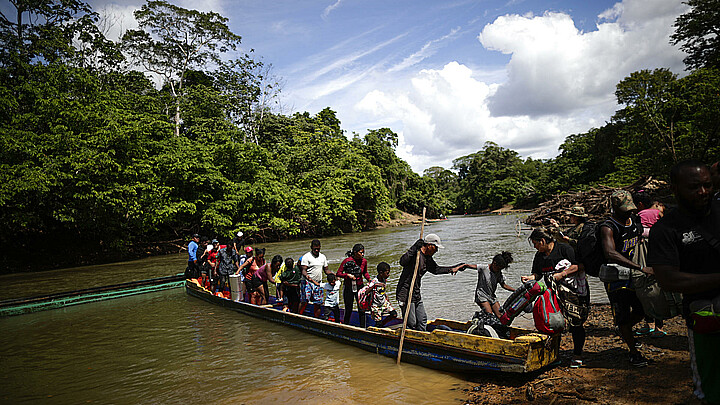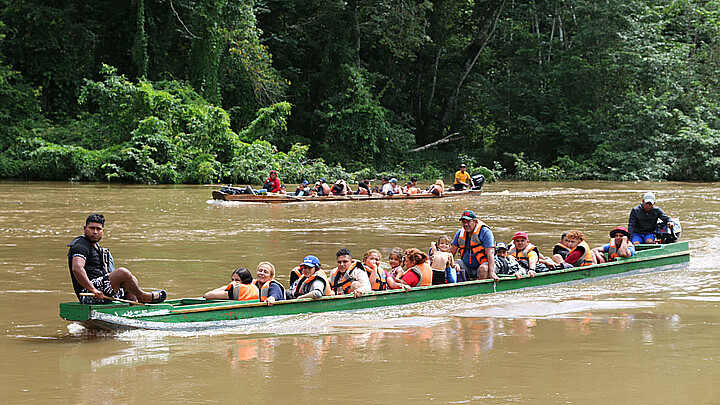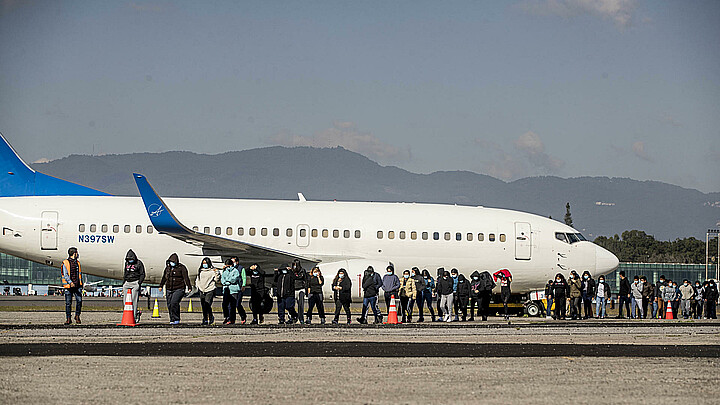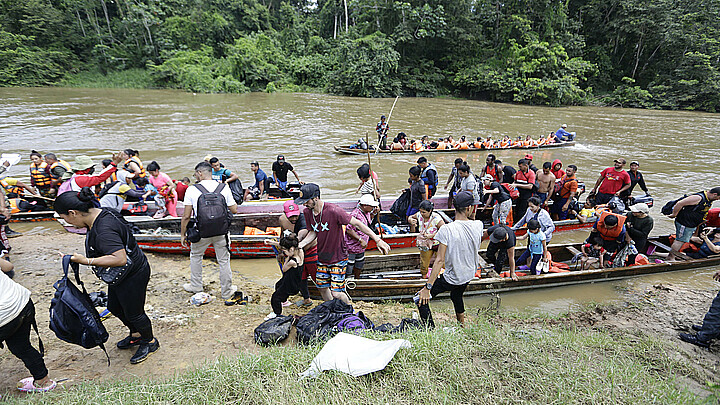Immigration
Cuban, Venezuelan asylum seekers find fraudulent travel schemes in search for freedom
Several online companies are offering fake comprehensive travel packages, which include mobilization throughout the Latin American region to the southwest border along with U.S. sponsors and legal advice about how to fill out asylum applications

February 7, 2023 9:05am
Updated: February 7, 2023 9:18am
Cuban and Venezuelan citizens are losing their life savings by sending their money to overseas companies selling fraudulent asylum-travel packages, ADN has learned based on sources in Cuba and the Miami area.
Several sources have expressed concern about the issue, and ADN found several companies online offering comprehensive travel packages that include mobilization throughout the Latin American region to the southwest border along with U.S. sponsors and legal advice about how to fill out asylum applications.
Unfortunately, some of those packages—while already promoting unlawful activity—are also cheating would be asylum seekers and migrant refugee out of their fees, which in some cases amount to thousands of dollars.
These concerns were confirmed by a recent NBC News report, which says the asylum travel package industry has become rife with fraud ever since President Biden initiated the White House’s new parole program to accept a capped number of migrants from Cuba, Haiti, Nicaragua and Venezuela.
The online travel companies have capitalized off the legal requirement for applicants to have a U.S. based sponsor. While some asylum seekers have a close relative who can fulfill the legal requirement of providing financial support for at least two years, some are finding companies offering straw sponsorship through social media and messaging platforms for anywhere from $8,000 to $10,000. In many cases however, those packages are scams, says the report.
One interviewee from Cuba, a young doctor, told NBC News she was the victim of fraud after she found such a package offered to her on Facebook. The alleged victim hoped she had found a legitimate American who would sponsor her journey for asylum, but she only ended up losing thousands of dollars.
“Most of them say they have relatives in Cuba that will refund the money if anything goes wrong, but they're all lies,” the woman, 28, told the national news network’s digital news site.
One of the doctor’s relatives transferred $1,800 to the so-called “sponsor,” after being erroneously told $1,000 was for an attorney and the other $800 was for the application process. But one the transfer of funds was completed, the source disappeared and the family lost years of savings.
“Many people I've contacted since then ask for money in advance. When I tell them I won't pay ahead of time, they immediately block me,” the young doctor said.
She said others who thought they found “sponsors” received purported travel documents and then discovered the papers were fake.
“I’ve heard of people who paid others for this type of service and they just disappear,” Miami immigration attorney John de la Vega told the network.
“They’re preying on people who are desperate and vulnerable that are trying to get to United States,” he said.
A search of such companies by ADN found numerous packages being offered with actual maps for migration showing paths throughout Latin America to the southwest border. In some cases they also offered purported basic plans for how they mobilize the would asylum seekers to the border.
While some of these plans are offered on international internet sites, they have also been found on social media platforms.
One Facebook post targeting Venezuelans seeking to flee the Maduro regime offered combination package deals including stays at people’s homes and even airport pickups. Another said it was offering sponsors for several thousand dollars, and said it would receive money through Zelle or for cash in Cuba, five thousand in advance and another five before leaving the island.
Some of the posts even go so far to as suggest that tax is included to create the veil it is a legitimate company and travel package. Those packages have become alluring since some Cubans and Venezuelans legitimately trying to flee persecution either don’t have a family member in the U.S. or can’t find one willing to take on the financial burden of supporting them for two years.
“When they approved the humanitarian parole program for Venezuelans I was receiving about 10 calls a day from people in Venezuela asking for us to sponsor them,” said Patricia Andrade, who runs a Miami based nonprofit, Raíces Venezolanas. Although she wants to help others, she said her small organization does not have the resources to sponsor asylum applicants.
Fortunately, migrants are now becoming aware of the fraudulent schemes as they have used the very social media platforms utilized by the fake companies to warn others.
Many of the comments on the pages purporting to offer the travel packages admonish others that it’s a “scam” and not to pay any money in advance.
“The agency carefully vets every prospective supporter through a series of fraud- and security-based screening measures before confirming a properly submitted I-134A, Online Request to be a Supporter and Declaration of Financial Support,” the U.S. Citizenship and Immigration Services told NBC, adding that “USCIS thoroughly reviews each reported case of fraud or misconduct, and may refer those cases to federal law enforcement for additional investigation.”
The U.S. agency said they do their best to warn overseas citizens considering seeking asylum to beware of online scams asking for money. Unfortunately, many of the migrants seeking help are not even aware of the U.S. government’s websites and resources and instead get proactively contacted by scammers before they have a chance to get the real story.
One Venezuelan woman who left for Colombia a year ago with family told MBC that contacted U.S. based churches and groups in the U.S.—anyone she could find to try and utilize the Biden administration’s parole program before it expires.
Even some of the groups she contacted in the U.S. asked her for several thousand dollars in advance.
“There are people out there capable of making things up and innocent people fall for it,” Dimatteo told NBC. “We fall for things because of the desperation and the anguish we’re facing.”
The Biden administration’s new parole program started in October 2022 for Venezuelans and was then extended in January 2023 to include Cubans, Haitians and Nicaraguans.
The program dictates that the U.S. will accept up to 30,000 people from each of those countries every calendar and entitles them to work in the country for two years. Those who still try to cross the border in Mexico are now being returned.
The program was announced in the wake of a massive migrant wave unseen since the Mariel Boatlift of 1980 and the Special Period of the 1990s after many risked their lives rafting across the Florida Straits to freedom.
Other ADN investigations have suggested the migrant crisis has been part of a systematic effort by both the Cuban and Venezuelan regimes to gain a bargaining chip in negotiations with the U.S. as an attempt to remove sanctions.
Since the crisis escalated, the Biden administration has opened up discussions with both regimes and negotiations have resulted in receding some policies from the Trump era, a move that has provoked criticism from Republicans and Cuban exiles in Miami.
Last month, when it was learned that the U.S. was sending officials from the Departments of Homeland Security, Justice and State to Havana to collaborate on law enforcement strategies, Cuban exile leaders penned columns in both the Miami Herald and Washington Times asking the Biden administration not to remove Cuba from the list of designated state sponsors of terrorism.










